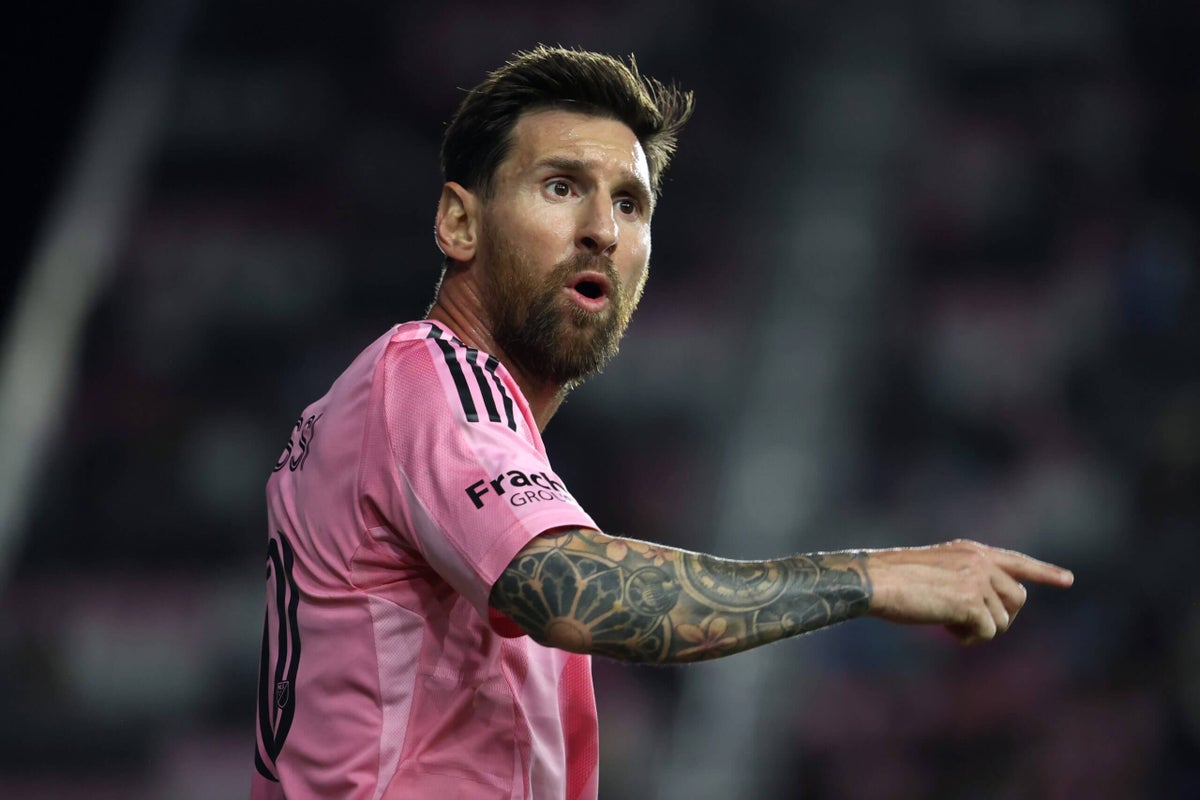
Lionel Messi says MLS must loosen purse strings in order to grow
Lionel Messi doesn’t typically share his thoughts on playing soccer in the U.S. But in an interview with NBC Nightly News with Tom Llamas on Monday, he spoke out on how he’d change MLS if he were the commissioner for a day.
The 36-year-old Inter Miami captain and eight-time Ballon d’Or winner recently extended his stay in South Florida through 2028. Already a minority owner of the club, Messi has a vested interest in growing the sport in the U.S. During Monday’s interview, he revealed that he believes soccer in the U.S., and specifically MLS, can grow. But one big change needs to happen.
“Well, for starters, every team should have the opportunity to bring in players and sign whoever each team wants — without limitations or rules for players to bring them in,” Messi said.
MLS’ salary cap and unique yet restrictive squad-building mechanisms are a staple of the league. Parity is a celebrated term at the MLS headquarters in New York. Commissioner Don Garber has long supported the league’s financial rules as positives rather than limitations. Messi, now in his third year in the league, clearly disagrees.
“I don’t think that today all teams in the United States, all clubs, have the power to do that, and I think that if they were given the freedom, many more important players would come and help the growth of the United States,” Messi continued.
Messi’s position won’t surprise MLS die-hards. Most will agree with him. Soccer fans who are accustomed to watching powerful clubs from around the world spend freely in their quest to win trophies will nod their heads in approval, as well. So why not MLS?
In the U.S., soccer continues to be on a positive growth trajectory. The men’s World Cup next summer will place the brightest of spotlights on MLS training facilities, current players, stadiums and prospective new signings.
And the league may never have an ambassador like Messi — one who challenges the league’s status quo, not only as the most important player in the league, but as a crucial member of one of the league’s most ambitious ownership groups.
Messi’s comments on Monday proved that while he’s enamored with life in the U.S., and certainly motivated to help build Inter Miami into a perennial league contender, he has doubts about the direction of MLS. Stating bluntly that MLS clubs don’t have the power to decide their own sporting strategies will no doubt rally the league’s other owners who share similar sentiments.
“Today, the Inter Miami brand is very strong, not only in the United States but also globally,” Messi said. “I think the club made a huge change and grew in every way, both athletically and institutionally, and I think it still has a lot more to grow and continue to improve in every way.”
When asked if he believes he has been successful in growing soccer’s footprint in the U.S., Messi answered, “I think so.” And when he was asked what was more difficult, winning the 2022 World Cup with Argentina or making soccer one of the premier sports in the U.S., Messi’s answer was carefully measured. He didn’t sing the league’s praises. Instead, Messi, who has won everything there is to win in the sport, let the world know that giant leaps for soccer in America are conceivable, but the clock is ticking faster than normal.
“I think that growing soccer in the United States is possible,” he said. “I think there are still big changes to be made so that teams can continue to grow, but I think there is a very important foundation in place where teams are prepared and want that growth, and I think it’s time to do it.”
First Appeared on
Source link






